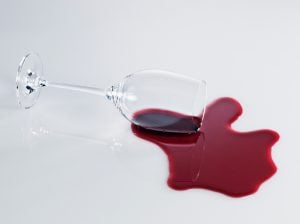
Fruit Of The Vine
//
 When it comes to certain beverages, the universe of brand names that matter is quite limited. With cola, it’s Pepsi or Coke. Sure there are off-brands available (and some of us may remember RC Cola with fondness) but in the minds of most consumers, the list of desirable cola brands is two entries long. As a kid growing up in Brooklyn, I do remember the controversy around Tropical Fantasy, a bodega soft-drink staple that was apparently a front for some kind of racist chemical castration scheme, if I remember correctly. That scuttlebutt scared me away from cheap soda forever, even as I am a big believer that in many places I have been, Coke or Pepsi were probably the safest thing to drink. When it comes to recognized brand names, other soft drinks are similar, whether it is Fanta or Sunkist for orange soda, or the lengthier list of three lemon-lime contenders, with Sprite, Sierra Mist (aka Starry), and 7-Up competing for shelf space at the local grocer or shoppers club. The same goes for supermarket staples like ketchup (Heinz or Hunt’s) or rice (Carolina or Goya) or even microwave popcorn (Pop Secret or Orville Redenbacher’s.) Yes, depending on the market that one shops at there may be even more variety available — such as the store-brand generic alternative for what seems like every edible item at your grocery store chain — but when it comes to consumer staples, the list of recognizable brands is often pretty short.
When it comes to certain beverages, the universe of brand names that matter is quite limited. With cola, it’s Pepsi or Coke. Sure there are off-brands available (and some of us may remember RC Cola with fondness) but in the minds of most consumers, the list of desirable cola brands is two entries long. As a kid growing up in Brooklyn, I do remember the controversy around Tropical Fantasy, a bodega soft-drink staple that was apparently a front for some kind of racist chemical castration scheme, if I remember correctly. That scuttlebutt scared me away from cheap soda forever, even as I am a big believer that in many places I have been, Coke or Pepsi were probably the safest thing to drink. When it comes to recognized brand names, other soft drinks are similar, whether it is Fanta or Sunkist for orange soda, or the lengthier list of three lemon-lime contenders, with Sprite, Sierra Mist (aka Starry), and 7-Up competing for shelf space at the local grocer or shoppers club. The same goes for supermarket staples like ketchup (Heinz or Hunt’s) or rice (Carolina or Goya) or even microwave popcorn (Pop Secret or Orville Redenbacher’s.) Yes, depending on the market that one shops at there may be even more variety available — such as the store-brand generic alternative for what seems like every edible item at your grocery store chain — but when it comes to consumer staples, the list of recognizable brands is often pretty short.
In contrast, the wine industry continues to inundate the average customer with a panoply of brands to navigate, even when the shopper is just looking for a decent bottle of swill to pair with their Sunday night takeout order. To start, most wine retail displays are a confusing maze of wines sorted by country of origin. Then to make things even more challenging, consumers are confronted with wine-growing sub-regions from each country, with American offerings often including wines from Napa Valley, Sonoma, or the Walla Walla region, as just a few examples. If your tastes skew more continental, understanding the difference between a Bordeaux, a Rioja, or a Chianti is an important component of a successful wine purchase. And let’s say you’re a Bordeaux fan, in which case the difference between Pomerol, Graves, or one of the 35 other Bordeaux appellations will be a factor to consider before splurging on many of that area’s high-end bottles. All these names! And I have not even gotten to the different producers of each wine. There is a reason that wine labels are full of names, each of which bears some significance to a consumer. In short, names matter and have value to wine consumers, even down to the listing of the vineyard from which the now-bottled grapes were harvested.
googletag.cmd.push( function() { // Display ad. googletag.display( "div-id-for-top-300x250" ); });Take, for example, the label from one of the most famous kosher wines of the past 20 years, the 2006 Herzog Generation VII To Kalon Vineyard Cabernet Sauvignon. A mouthful, to be sure, but each of the “brands” on the label carry meaning. Herzog, for example, is one of the most prominent producers of fine kosher wine, based out of their headquarters in Oxnard, California. (I only drink kosher wine and appreciate how much variety is now available for the kosher consumer. Herzog makes wines using 25 different varietals, sourced from a range of California vineyards, from Lodi to Napa.) And as the kosher wine drinker’s palate — and budget — has expanded, Herzog has not been reticent about releasing premium wines made from grapes sourced from world-famous vineyards, such as its current Generation IX offering using Stag’s Leap fruit. For the 2006 wine under discussion, Herzog paid $25,000/ton for grapes from Beckstoffer’s legendary To Kalon vineyard in Napa Valley — knowing as they did that for their kosher customers, the chance to sample wine from that vineyard had previously been but a fantasy. More importantly, Herzog knew that customers would pay a premium for the To Kalon name, which explains why the wine’s label features that information in a prominent place on the front of the bottle.
 Sponsored Introducing Filevine’s 2023 Customer Benchmark Report Explore new data on how modern law firms are managing their work. From Filevine and Above The Law
Sponsored Introducing Filevine’s 2023 Customer Benchmark Report Explore new data on how modern law firms are managing their work. From Filevine and Above The Law As the Herzog example shows, even the name of the vineyard can drive demand for wine, regardless of the identity of the producer. That fact now lies at the center of an interesting new trademark case that was filed about a month ago, between the owners of the Beckstoffer section of the To Kalon vineyard and a direct-to-consumer wine producer called Sleeper Wines. The issue? The release by Sleeper of this wine, which according to Beckstoffer was an unauthorized use of its Beckstoffer To Kalon trademark rights. In an interesting twist, the Sleeper advertisement for the wine makes reference to the fact that “no doubt our legal counsel is furious” with respect to the To Kalon reference on the label. As noted in Beckstoffer’s complaint, the alleged infringement only dates back to earlier this year. I checked the website on which the accused wine was sold and it appears that it has already been scrubbed of any references to the troubled tipple. In another interesting twist, Beckstoffer included a claim for breach of contract, alleging on information and belief that the wine at issue was made with To Kalon grapes that were “sold to or provided to Defendants by a purchaser or purchasers of Plaintiff’s grapes,” in an alleged breach of that customer’s obligations under their license agreement with Beckstoffer. A twisted vine of a trademark and unfair competition dispute, at least according to Beckstoffer’s filing.
It appears, however, that the alleged infringement was of a one-time and limited nature, which suggests that this case will likely end with some form of apology or payment, or both, in the context of a settlement. Still, Beckstoffer’s filing is a good example of a trademark owner that files a case for both its deterrent effect on future infringement by the accused infringer and others, as well as a sign of resolve that the brand owner will protect its customers from potential source confusion. Considering the obscene prices that Beckstoffer’s To Kalon grapes command in the market, preserving the veneer of exclusivity and rarity is important — and IP owners don’t do that well when they let egregious infringements slide without taking legal action. While I suspect that we will hear that this matter will resolve soon, this case is a great reminder of how important branding is to the wine industry. Whether you favor Two-Buck Chuck or a fancy Napa cab, remember that the winemaker’s goodwill is impacted by a variety of factors, from geographical references to whatever interesting name the wine itself is marketed under. As a result, expect that IP issues will continue to ferment when it comes to the fruit of the vine.
googletag.cmd.push( function() { // Display ad. googletag.display( "div-id-for-middle-300x250" ); }); googletag.cmd.push( function() { // Display ad. googletag.display( "div-id-for-storycontent-440x100" ); }); googletag.cmd.push( function() { // Display ad. googletag.display( "div-id-for-in-story-youtube-1x1" ); });Please feel free to send comments or questions to me at [email protected] or via Twitter: @gkroub. Any topic suggestions or thoughts are most welcome.
Sponsored Sponsored Why CRM Is An Essential Tech Tool For Law Firms In 2023 CRMs are powerful tools to help law firms grow and scale without needing more staff. Read on for a brief overview of the basic benefits… From Brittany Cianflone
Sponsored Why CRM Is An Essential Tech Tool For Law Firms In 2023 CRMs are powerful tools to help law firms grow and scale without needing more staff. Read on for a brief overview of the basic benefits… From Brittany Cianflone  Sponsored The Global Legal News You Need, When You Need It News and analysis from this company could be a game-changer for legal professionals working globally. From Ethan Beberness
Sponsored The Global Legal News You Need, When You Need It News and analysis from this company could be a game-changer for legal professionals working globally. From Ethan Beberness  Sponsored Introducing Filevine’s 2023 Customer Benchmark Report Explore new data on how modern law firms are managing their work. From Filevine and Above The Law
Sponsored Introducing Filevine’s 2023 Customer Benchmark Report Explore new data on how modern law firms are managing their work. From Filevine and Above The Law  Sponsored Why CRM Is An Essential Tech Tool For Law Firms In 2023 CRMs are powerful tools to help law firms grow and scale without needing more staff. Read on for a brief overview of the basic benefits… From Brittany Cianflone
Sponsored Why CRM Is An Essential Tech Tool For Law Firms In 2023 CRMs are powerful tools to help law firms grow and scale without needing more staff. Read on for a brief overview of the basic benefits… From Brittany Cianflone Gaston Kroub lives in Brooklyn and is a founding partner of Kroub, Silbersher & Kolmykov PLLC, an intellectual property litigation boutique, and Markman Advisors LLC, a leading consultancy on patent issues for the investment community. Gaston’s practice focuses on intellectual property litigation and related counseling, with a strong focus on patent matters. You can reach him at [email protected] or follow him on Twitter: @gkroub.
googletag.cmd.push( function() { // Display ad. googletag.display( "div-id-for-bottom-300x250" ); }); Sponsored Sponsored What Do Millennials Think Of Law Firm Life? We want to know your views on law firm policies and culture. From Above The Law
Sponsored What Do Millennials Think Of Law Firm Life? We want to know your views on law firm policies and culture. From Above The Law  Sponsored Understanding Big Law: A Must-Read Guide To One Of The Most Challenging Workplaces In The World Is Now Available From Elizabeth M. Bennett Topics
Sponsored Understanding Big Law: A Must-Read Guide To One Of The Most Challenging Workplaces In The World Is Now Available From Elizabeth M. Bennett Topics Gaston Kroub, Intellectual Property, Trademark, Wine
Introducing Jobbguru: Your Gateway to Career Success
The ultimate job platform is designed to connect job seekers with their dream career opportunities. Whether you're a recent graduate, a seasoned professional, or someone seeking a career change, Jobbguru provides you with the tools and resources to navigate the job market with ease.
Take the next step in your career with Jobbguru:
Don't let the perfect job opportunity pass you by. Join Jobbguru today and unlock a world of career possibilities. Start your journey towards professional success and discover your dream job with Jobbguru.
Originally posted on: https://abovethelaw.com/2023/03/fruit-of-the-vine/